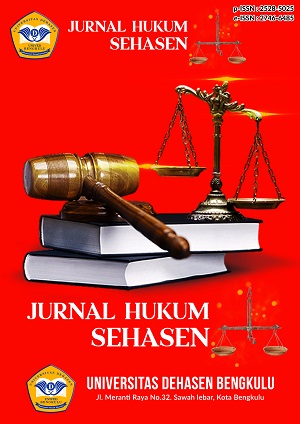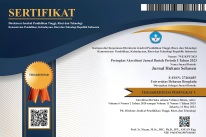Implementation Of Restorative Justice As An Alternative To Criminal Case Resolution: Analysis Of Court Decisions On Criminal Acts That Ended With The Implementation Of Restorative Justice At The South Jakarta District Attorney's Office
Abstract
Restorative justice is present as a new paradigm in the criminal justice system that offers a more humanist and participatory approach. This approach emphasizes empathy, moral responsibility, and the restoration of relationships between perpetrators, victims, and society, not just punishing perpetrators. These values are in line with the cultural principles of the Indonesian nation which prioritize deliberation and consensus in resolving social conflicts. This study aims to analyze the implementation of restorative justice in the South Jakarta District Attorney's Office using descriptive qualitative methods and case studies. The data collection technique is carried out through the analysis of the annual report of the South Jakarta District Attorney's Office and the analysis of case documents that have been anonymized. The main focus of this study is to identify the effectiveness of the implementation of RJ, supporting factors, and the accompanying obstacles and opportunities. The results of the study show that RJ is effective in resolving minor criminal cases, especially minor persecution (Article 352 of the Criminal Code) and fraud with losses of less than Rp10 million. In addition to accelerating the process of resolving the case, RJ also allows the achievement of a peace agreement that satisfies both parties. However, the implementation of RJ still faces a number of challenges, such as a lack of public understanding, victim resistance in cases of violence, and the lack of uniform operational standards and adequately trained human resources. These findings show the need to strengthen regulations governing the implementation of RJ, increase the capacity of mediators, as well as the preparation of systematic technical guidelines and comprehensive socialization to the public so that the implementation of restorative justice can run effectively, measurably, and fairly.
Downloads
Copyright (c) 2025 Amanda Eka Putri, Kezia Kurnia, Made Suryajaya M.W, Hidayat Hidayat, Bella Amayda

This work is licensed under a Creative Commons Attribution-ShareAlike 4.0 International License.






